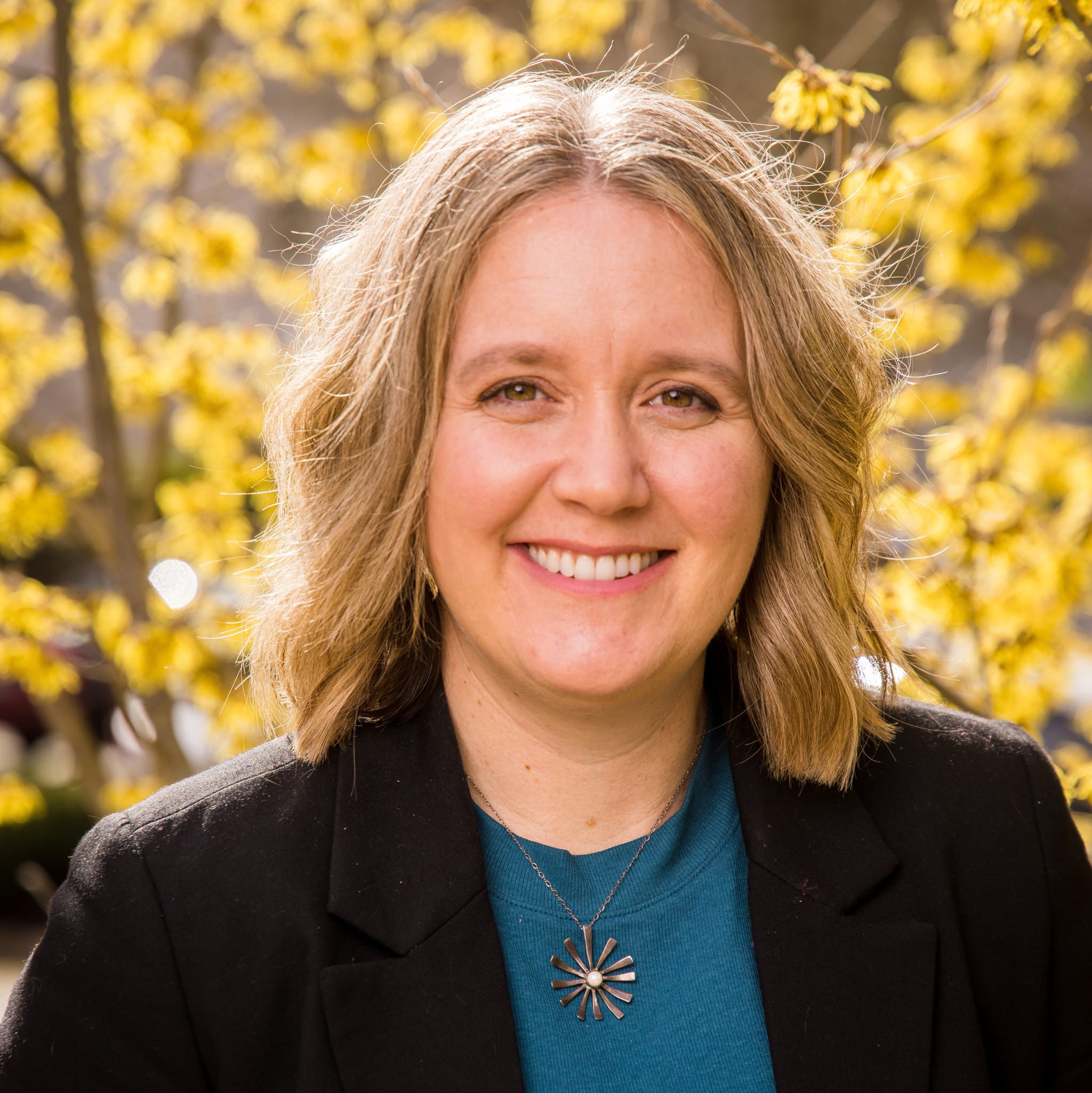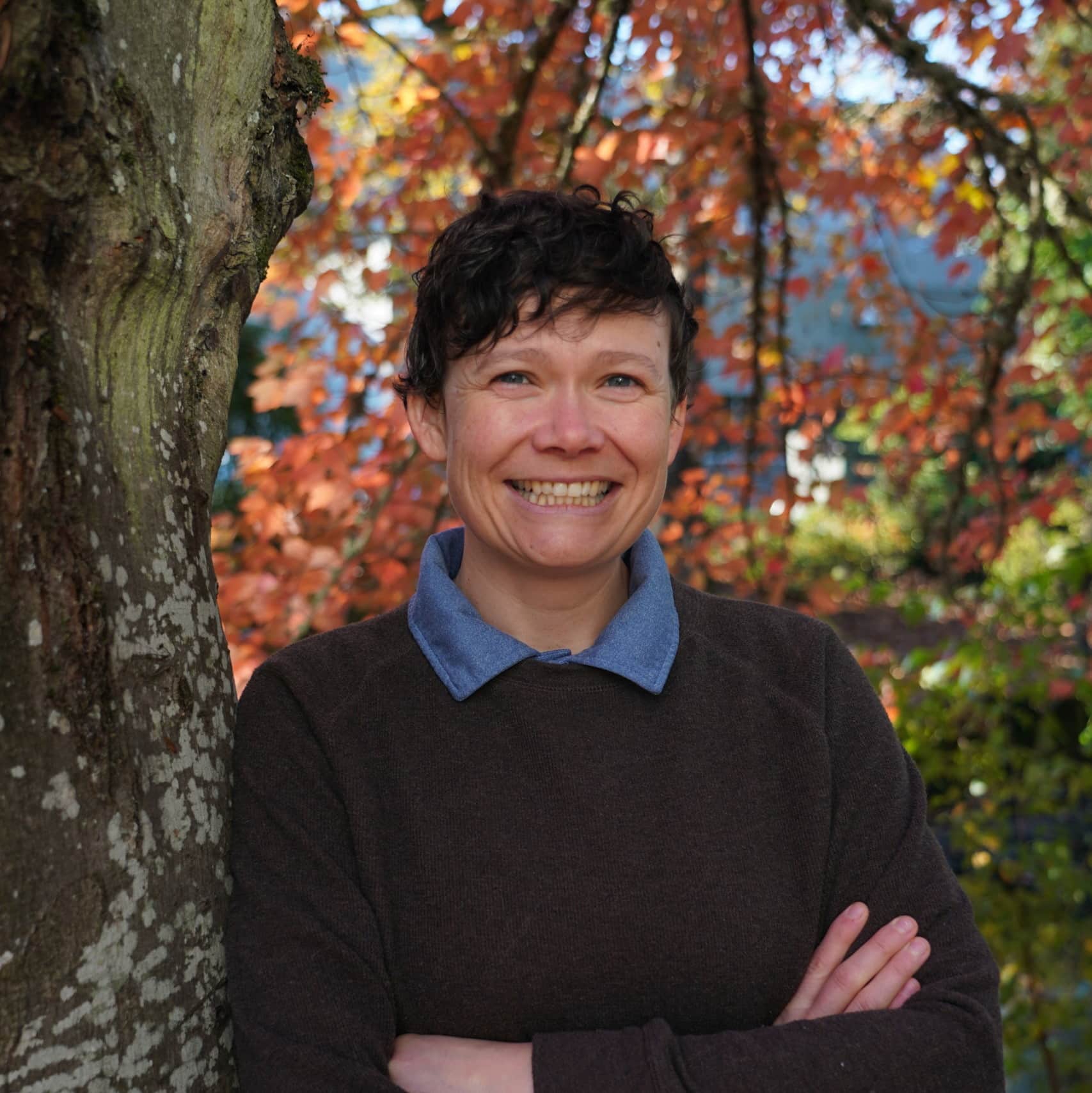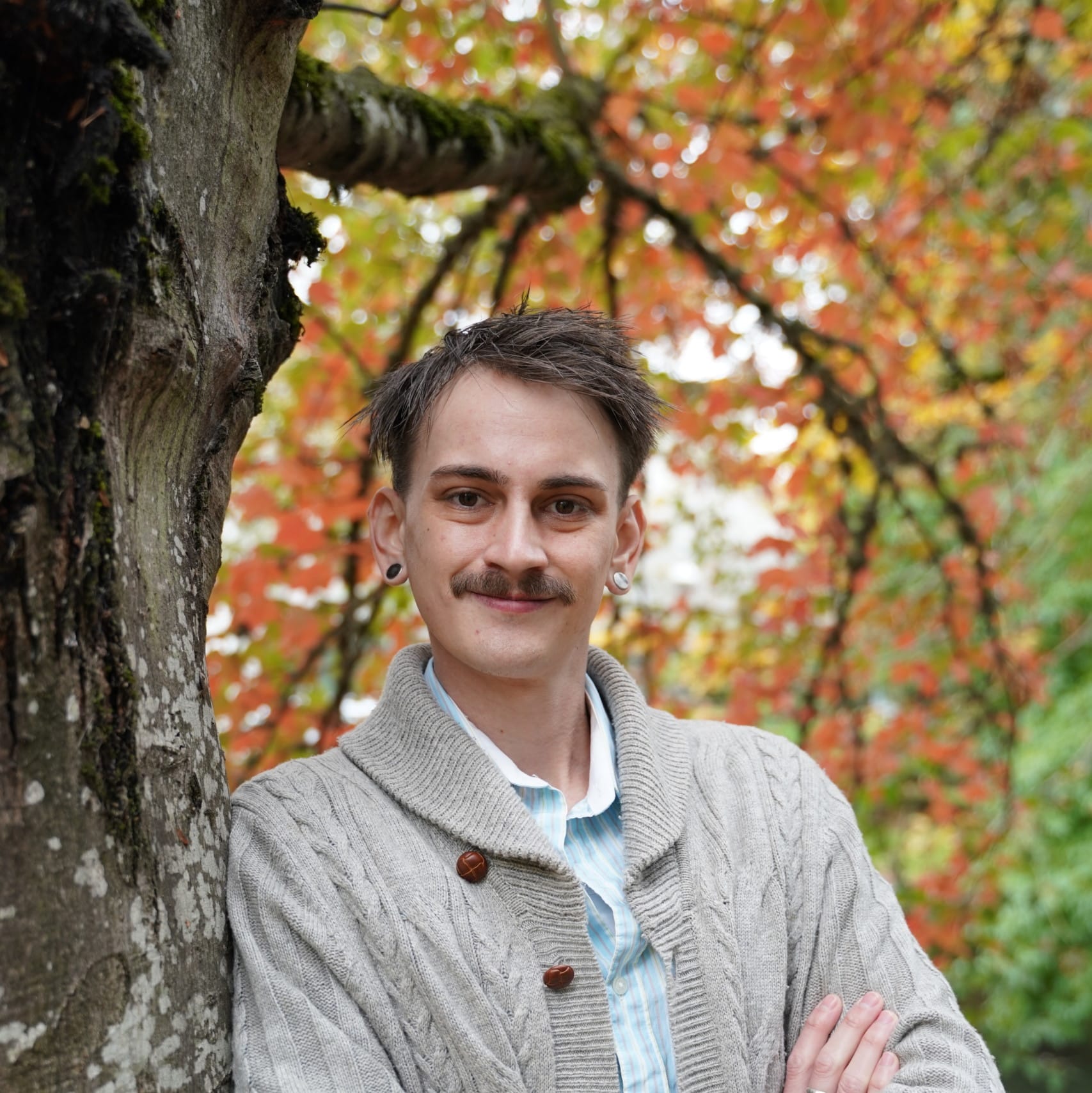M.A. Clinical Mental Health Counseling
In-person

Grow your knowledge of yourself and the world with life-changing learning. Bushnell University’s Clinical Mental Health Counseling program provides you with a distinctive learning experience and prepares you with the skills necessary to be a successful and impactful Licensed Professional Counselor (LPC) while preparing you to be a culturally informed mental health counselor who integrates current, evidence-based interventions and techniques to foster client wellness and relationships.
Credits 60 | Cost/Credit $830 | Completion 28 Months | Format In-Person | Starts Every August
Contact
Rachel Grant
Admission Counselor
541-684-7348
rgrant@bushnell.edu
Dr. Marilyn Montgomery
Program Director
541-684-7465
mmontgomery@bushnell.edu
Why Choose Bushnell?
Graduates of the Clinical Mental Health Counseling program meet the academic standards leading to Oregon licensure as a professional counselor (LPC). LPCs offer counseling services to individuals or groups in private practice and agency settings. These services may be in the areas of personal-social concerns, educational programs, and career decisions. Counseling services include the use of recognized best practices, counseling techniques, appraisal/assessment methods, and current research.
You will gain a solid foundation of counseling skills, procedures, and theories. Building upon that base, you’ll be encouraged to develop a theoretical orientation to counseling that matches your own personality and value system. Students implement and refine this personal approach to counseling in their second year by seeing clients in the Bushnell Counseling Center. All Practicum and Internship students receive individual and group supervision from qualified supervisors throughout the program.
Program Overview
The Clinical Mental Health Counseling (CMHC) program at Bushnell University is a great option for students who want to pursue a career in mental health counseling and community and social services. Here is a sampling of why students choose the CMHC program:
- Comprehensive coursework: The CMHC program covers a wide range of topics, including counseling theory, lifespan and development, individual and group work, and multicultural humility. This comprehensive coursework prepares students to work with diverse populations and handle a variety of mental health issues.
- Licensure preparation: Graduates of the CMHC program meet the academic standards leading to Oregon licensure as a professional counselor (LPC). This means that students who complete the program are well-prepared to pursue licensure and begin their careers as mental health counselors.
- Success rate: The CMHC program at Bushnell University boasts a range of 81-90% licensure exam success rate. This high success rate is a testament to the quality of the program and the preparation that students receive.
- Bushnell University’s Counseling Center offers low-cost, confidential counseling to adults in the community. Sessions are provided by graduate students working towards their CMHC degree, which gives students practical experience as they develop their counseling skills.
Mission Statement
The mission of the Bushnell University Clinical Mental Health Counseling program is to prepare culturally competent and humble mental health counselors who integrate evidence-based interventions and techniques with clients to foster their optimal wellbeing and relationships in a diverse society.
Program Format
This 60-credit hour program offers in-person and online courses and is designed to be completed in 28 months. Some of your classes will be onsite during the evening hours and some of your classes will be offered online.
In addition to class time, students have an opportunity for direct client contact at Bushnell University’s operational onsite counseling clinic.
Program Objectives
Upon completion of the Master of Arts in Clinical Mental Health Counseling, candidates will:
-
- Exhibit a professional identity as a clinical mental health counselor, as evidenced by active preparation for licensure and other counseling credentials including membership in relevant professional associations.
- Demonstrate professional dispositions, ethical practices, and adherence to legal requirements for counselors in relationships with clients, peers, supervisors, other professionals, and self.
- Integrate knowledge of world views, spirituality, socio-cultural experiences, and diverse characteristics impacting counselors and clients while engaging in client-centered counseling practices with diverse client populations.
- Demonstrate competence in essential interviewing, counseling, and case conceptualization skills.
- Articulate a personal model of counseling for individual, family, career, and group work informed by counseling theory and research evaluating the effectiveness of counseling interventions.
- Conduct a comprehensive mental health assessment including a diagnostic impression, cultural assessment, risk assessment, and other assessments relevant to a case.
- Formulate and monitor the effectiveness of developmentally relevant, trauma-informed, and culturally sustaining biopsychosocial treatment plans with measurable outcomes for the clients.
- Utilize effective strategies and resources for interfacing with integrated behavioral health care professionals and networks within the continuum of care.
FAQ's
- How much does the program cost?
The current tuition and fees are listed under our tuition and scholarships page. The CMHC program is 60 credits. When making plans, prospective students should also consider expenses such as textbooks and a parking pass.
- How long does it take to complete the program?
The CMHC program is generally completed in 28 months.
- Can I work while doing this program?
Students in the CMHC program must make a personal choice about working while pursuing their education. In the first year of the program, students are required to come to campus just one evening each week, which does allow students to continue working if they choose. In the second year of the program, they also begin seeing clients and participate in supervision with faculty and peers twice a week. Completing clinic hours, attending supervision, and balancing a weekly class may require students to adjust their work schedule as they progress in the program.
- Is Bushnell accredited?
Yes. The CMHC program is accredited through CACREP (The Counsel for Accreditation of Counseling and Related Educational Programs).
- What can I do with my degree after graduating?
The CMHC program is the first step toward becoming a Licensed Professional Counselor (LPC). To become an LPC, students must complete their master’s degree, pass the National Counselor Exam (NCE), and complete 1,900 supervised direct-client hours. Graduates of our program are eligible to work in a variety of settings, including agencies, private practice, non-profits, schools, prisons, hospitals, etc. and with individuals across the lifespan.
Have other questions? Contact our admission counselor at 541-684-7201.
Program Evaluation & Outcomes
46 Graduates from the Clinical Mental Health Counseling program in the past year.
95% of CMHC students successfully complete the program within 3 years.
81-90% Licensure/certification exam pass rate range of students graduating from the Clinical Mental Health Counseling program.
90% Job-placement rate of graduates from the Clinical Mental Health Counseling program.
Onsite Counseling Clinic
In addition to class time, students have the opportunity for direct client contact at Bushnell’s operational onsite counseling clinic. Under the supervision of clinically experienced faculty, students in the Clinical Mental Health Counseling program provide low-cost, confidential counseling to adults in the community.
Roseburg Campus
At this time, we are not enrolling new students at this location.
Admissions Requirements
- A free application for admission
- Official transcripts showing completion of a bachelor’s degree from a regionally accredited college or university, with a minimum undergraduate GPA of 3.0. (If the applicant’s grade point average falls below a 3.0, submit a one-page supplemental essay to the Admissions Committee explaining the situation and reasons for admission consideration)
- A statement of purpose of two to three pages (double-spaced) showing skills in written communication, articulating interest in counseling as a profession, and demonstrating maturity to work with diverse individuals in counseling settings
- Two letters of recommendation from professional references who can attest to the applicant’s personal and professional qualities and readiness for graduate study. At least one letter should be from a supervisor such as the following: current/former employers, internship/volunteer supervisors, current or former faculty or mentors. Individuals who are not considered professional references include the following: family members, personal therapists/counselors, or current/ former supervisees or clients
- A professional resume detailing relevant experience, including educational experience, work experience, volunteer experience, and diversity experiences (e.g. advocacy, language proficiencies, cultural immersion experiences).
- One dispositional assessment from a colleague in a professional setting
- At their own expense, applicants must obtain and pass a criminal background check
- A personal interview with the Admissions Committee
- A minimum score of 550 on the TOEFL (213 on the computer TOEFL) for applicants from non-English speaking countries
Cost of Attendance
Per Semester:
Housing & Food: $5,650
Books & Supplies: $55 per credit
Personal: $700
Transportation: $700
Tech Fee: $175
Questions?
Rachel Grant
Admission Counselor
541-684-7348
rgrant@bushnell.edu
Dr. Marilyn Montgomery
Program Director
541-684-7465
mmontgomery@bushnell.edu
Courses
For full course descriptions, visit our academic catalog.
- Professional Orientation
- Special Topics
- Personality and Counseling Theory
- The Helping Relationship
- Ethical and Legal
- Research and Evaluation
- Group Dynamics and Theory
- Human Growth and Development
- Lifestyle and Career Development
- Counseling in a Multicultural Society
- Family Systems
- Diagnosis and Neurodiversity
- Testing and Appraisal
- Addiction Counseling
- Crisis, Trauma, and Grief Counseling
- Psychopharmacology and Advanced Practice Issues
- Clinical Practicum
- Clinical Internship
- Capstone
Accreditation
Bushnell University’s Master of Arts Degree in Clinical Mental Health Counseling is accredited by the Council for Accreditation of Counseling and Related Educational Programs (CACREP), a specialized accrediting body recognized by the Council for Higher Education Accreditation (CHEA). This flyer provides an overview of CACREP and its standards.
Bushnell University’s Master of Arts in Clinical Mental Health Counseling Program is approved by the Oregon Board of Licensed Professional Counselors and Therapists (OBLPCT).
Clinical Internship Sites
Here is a sampling of some the site locations our students have interned at while in the CMHC program:
- CAHOOTS – White Bird Clinic
- Bushnell University – Mental Health Counseling Clinic
- Family Faith And Relationship Advocates (FARA)
- Shangri-La
- Youth Services – Lane County
- Willamette Sky Counseling
- Umpqua Community College
- The Sage House
- Eugene Mission
- South Lane Mental Health
- The Child Center
- El Rod
- Monte Nido (Rain Rock)
- Lane Community College
- Lane County Behavioral Health
- JJ Oregon State Hospital
- Jasper Mountain
- Holly Residential Center
- Douglas County Educational Service
- COMPASS
- Cascade Behavioral Health
- Center Community Counseling
- Children’s Farm Home
- Empowerment Therapy
- Options Counselng
- PeaceHealth
- Stronger Oregon
- Sernity Lane
- Maegan Mexicotte
- G Street Integrated Health
- bethel Health Center
- Cascade Hospice
- Christians As Family Advocates (CAFA)
- Faith Hope and Healing
- Family Development Center Douglas County Relief Nursery
- The Relief Nursery
- C.H.O.I.C.E.S. (Created Healthy Options In Confronting Exploitive Sexuallity
- CFD – Recovery Program
- Jackson County Health and Human Services
- Looking Glass – (AYS)
- Postpartum Support International
- Left Coast wellness
- Parry Center for Children
- Oaskland Elementay School
- Eating Disorder center of Eugene – Monte Nido
- North Douglas Elementary Middle School
- Direction Service
- Children’s Behavioral Health, Marion County
- Wild Wish Counseling
- Rimrock Trails Treatment Services
- Breaking Free LLC
- Benson Health Cinic
- Sweet Home School District
Students & Alumni Employment
Here is a sampling of some of the organizations our graduates are employed by:
- Looking Glass
- Adaptive Integrated Healthcare
- Aviva Health
- Cascade Health
- Candlelighters for Children With Cancer
- Options Counseling & Family Services
- Jasper Mountain Agency
- Various University Counseling Centers
- Arise
- Direction Service
- Alive Holistic
- Christians As Family Advocates
- Riverview Center for Growth
Faculty
Core Faculty
- Darleen Dempster, Ph.D. – Associate Professor of Clinical Mental Health Counseling, Faculty Advisor – Chi Sigma lota
- Marilyn Montgomery, Ph.D., LPC, NCC, BCC – Program Director and Professor of Counseling
Affiliate Faculty
- Mindi Barta, M.A., LPC, NCC
- Devon Halleman, M.A. – Fieldwork Coordinator/Instructor
-
Sydelle A. Lang, M.A., APCC, APC, CIMP – Adjunct Professor
- Samatha Silver, M.A. – CMHC Clinic Director/ Student-Athlete Mental Health Coordinator
- Rebecca Tsuchiya, M.S. – Instructor
- Abraham Cazares-Cervantes, Ph.D.- Instructor
News
Academic Catalog
Military & Veteran Benefits
Academic Calendar
Tuition & Fees / Financial Aid
Hear From Our Students

Meet the Faculty
Mindi Barta, M.A., LPC, NCC
Affiliate Faculty
“The CMHC program at Bushnell University is a unique and comprehensive program that prepares students for successful careers in mental health counseling.
With a focus on diversity, licensure preparation, and practical experience, students who pursue this program will be well-equipped to make a positive impact in their communities.”



